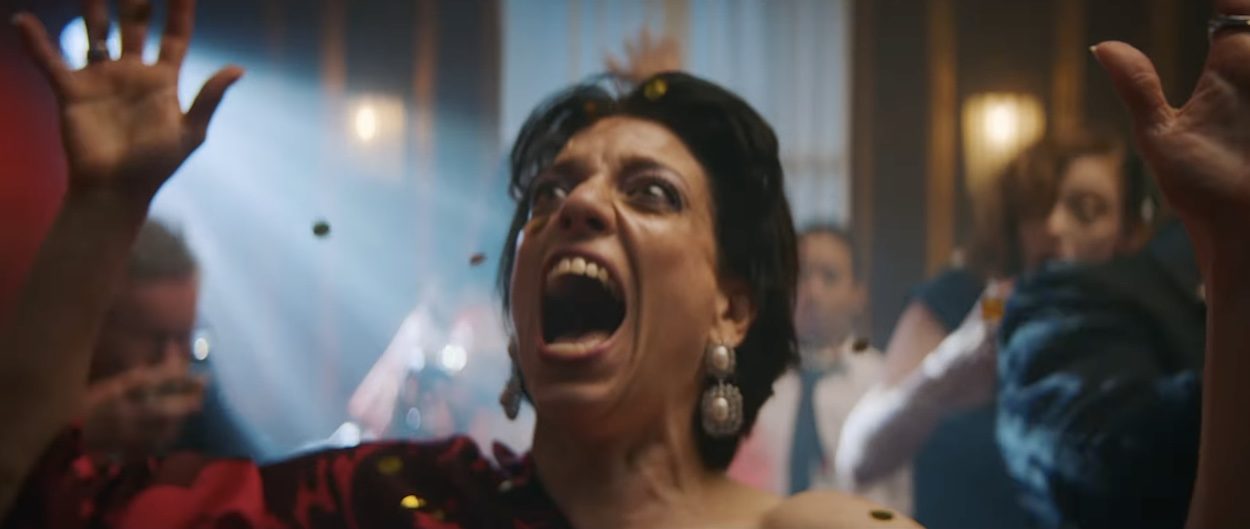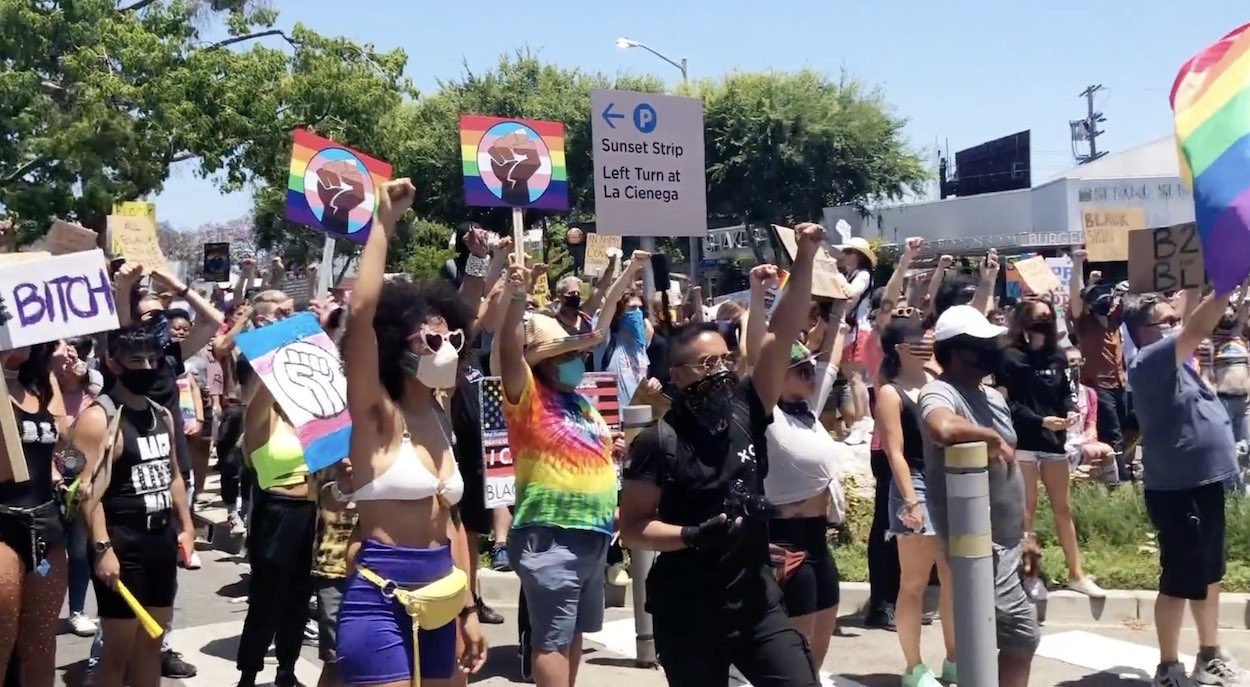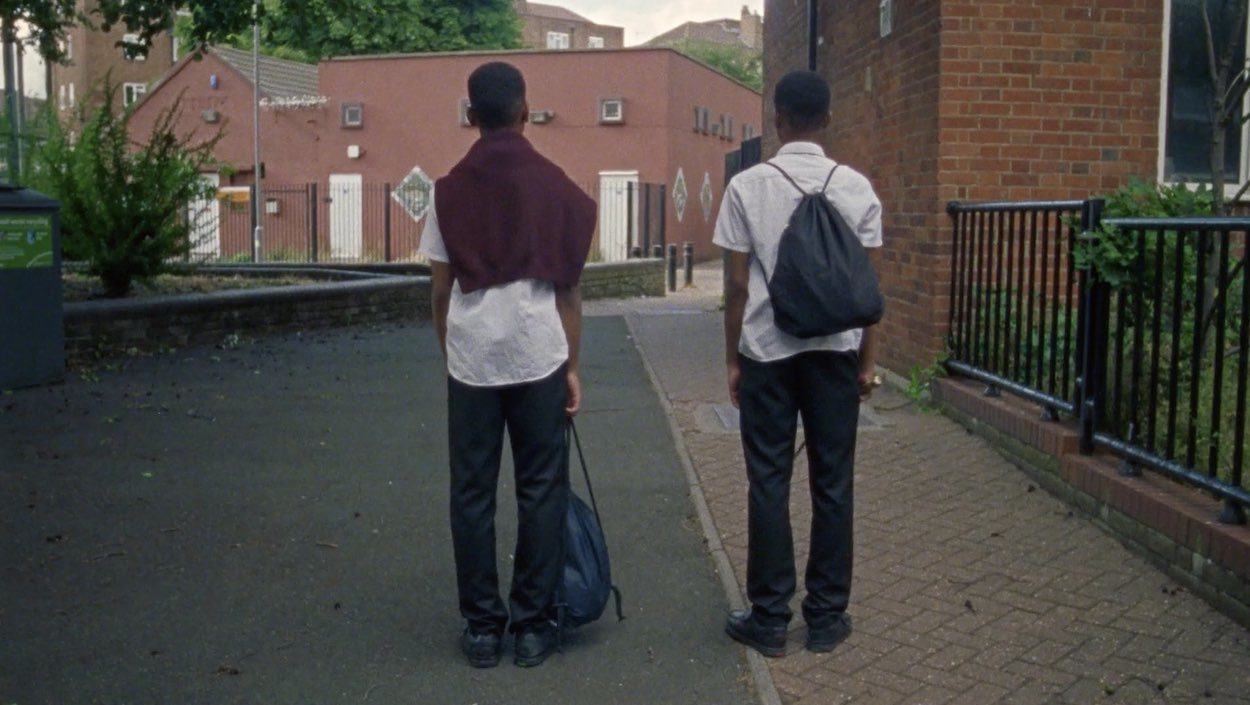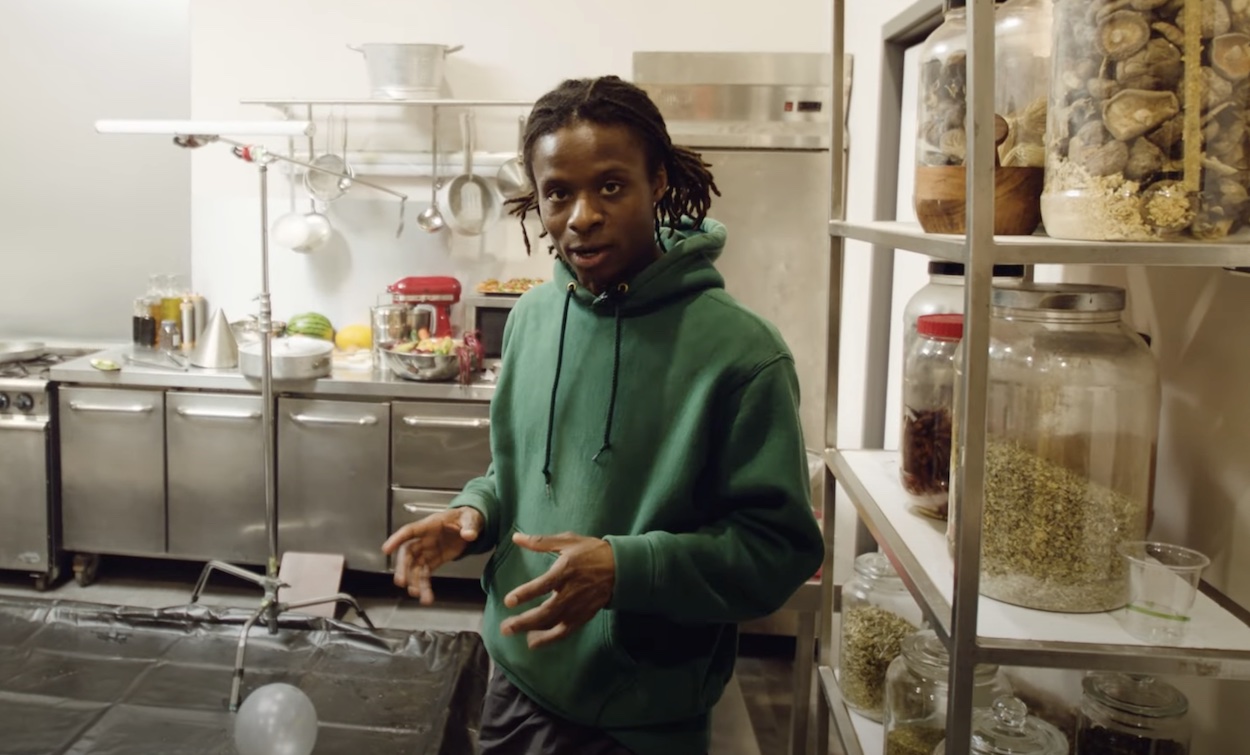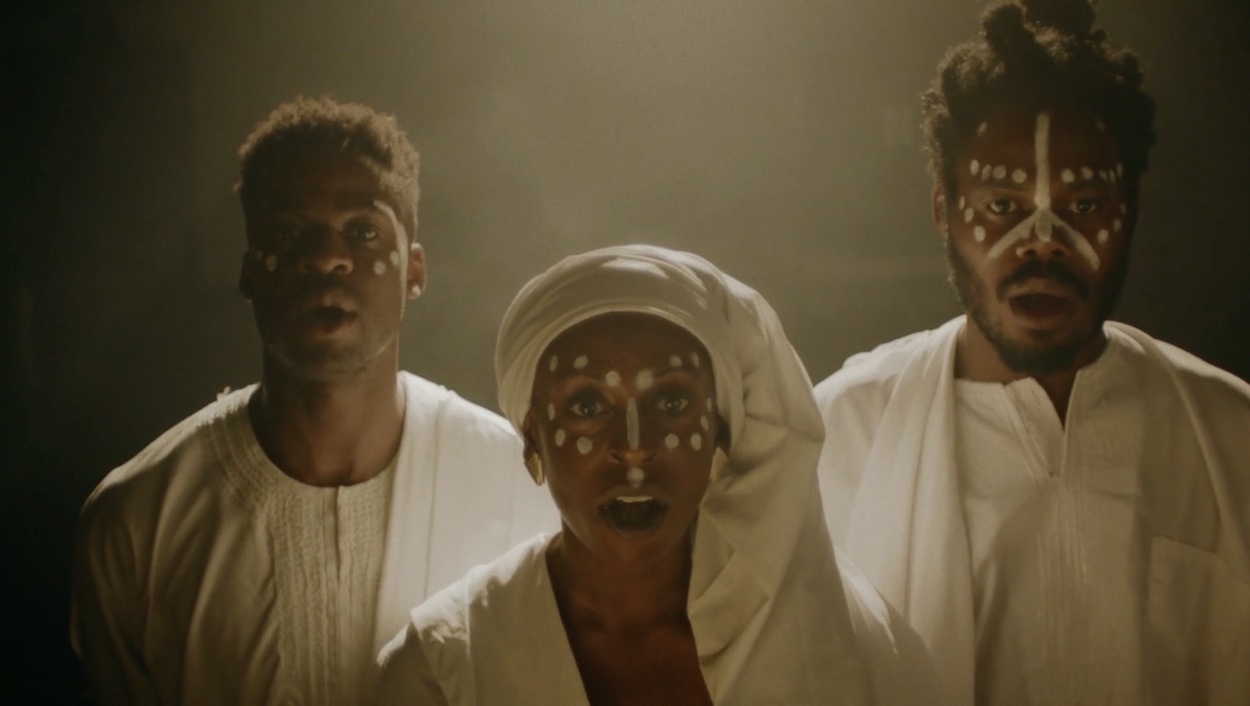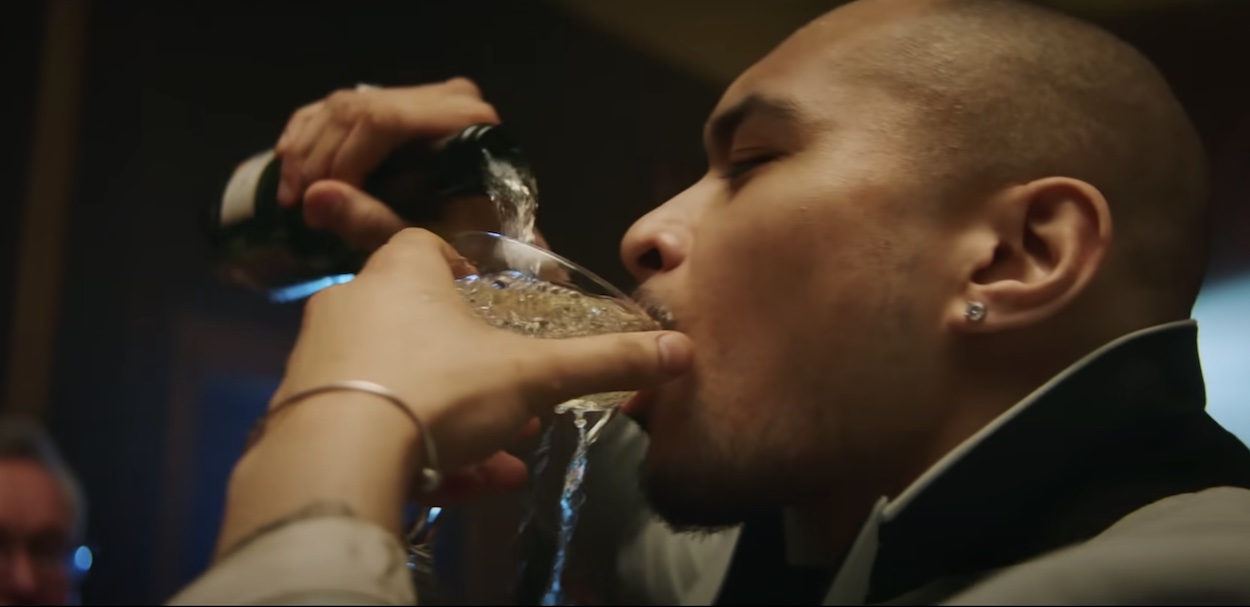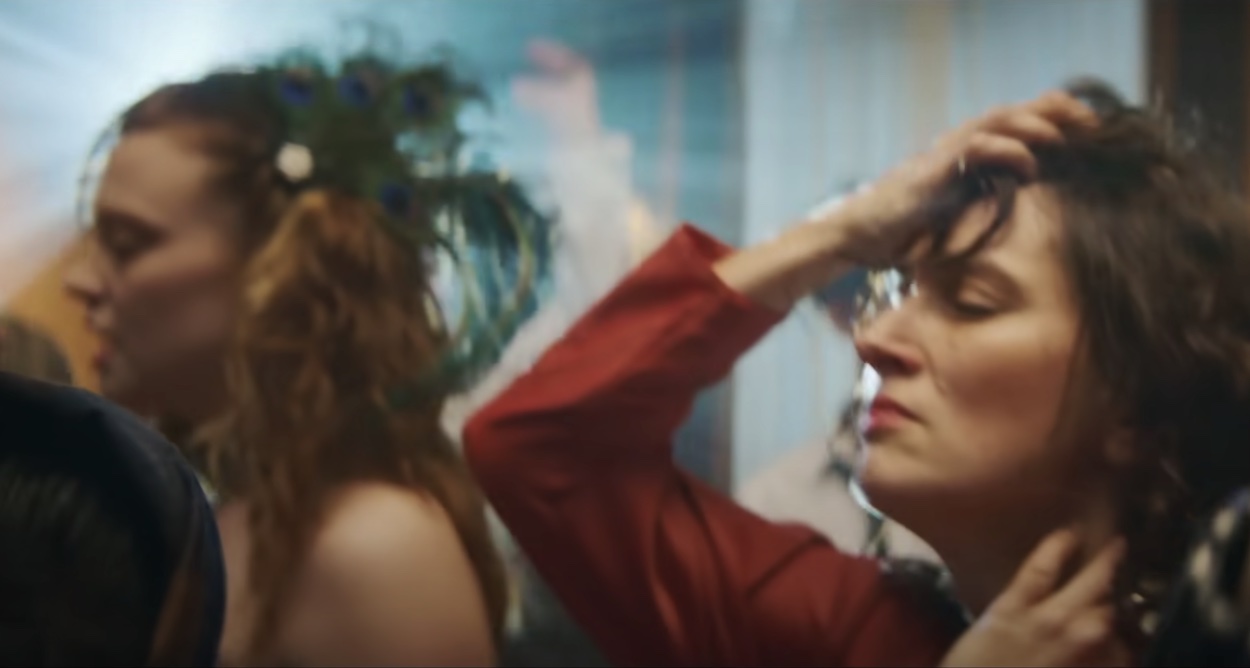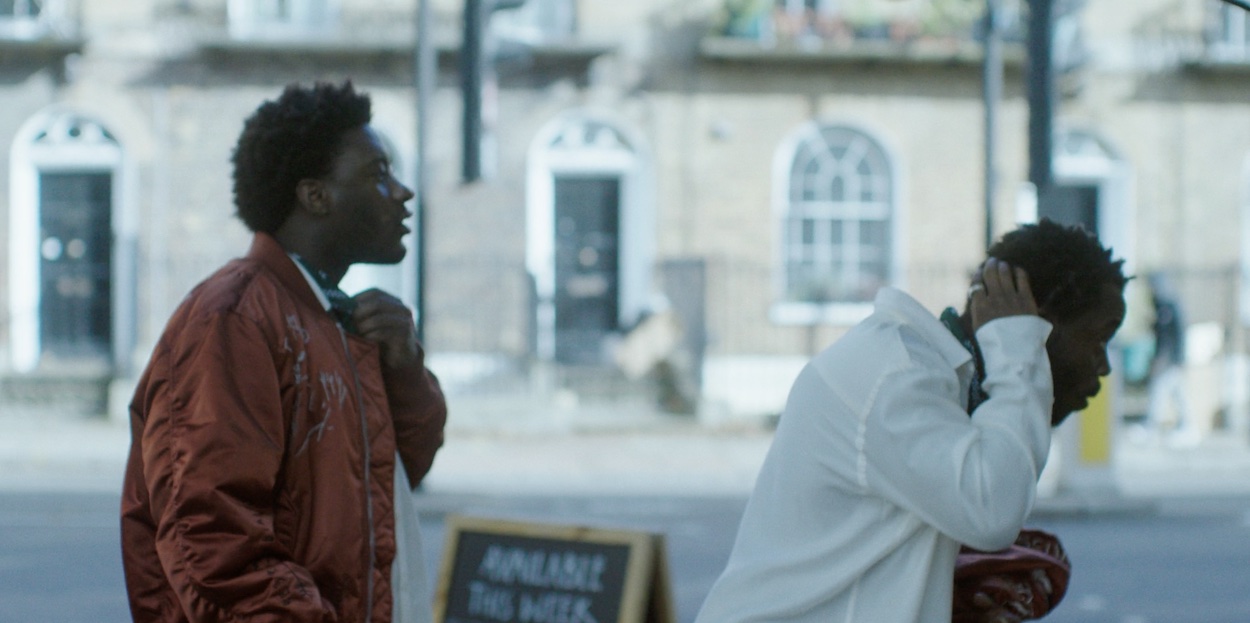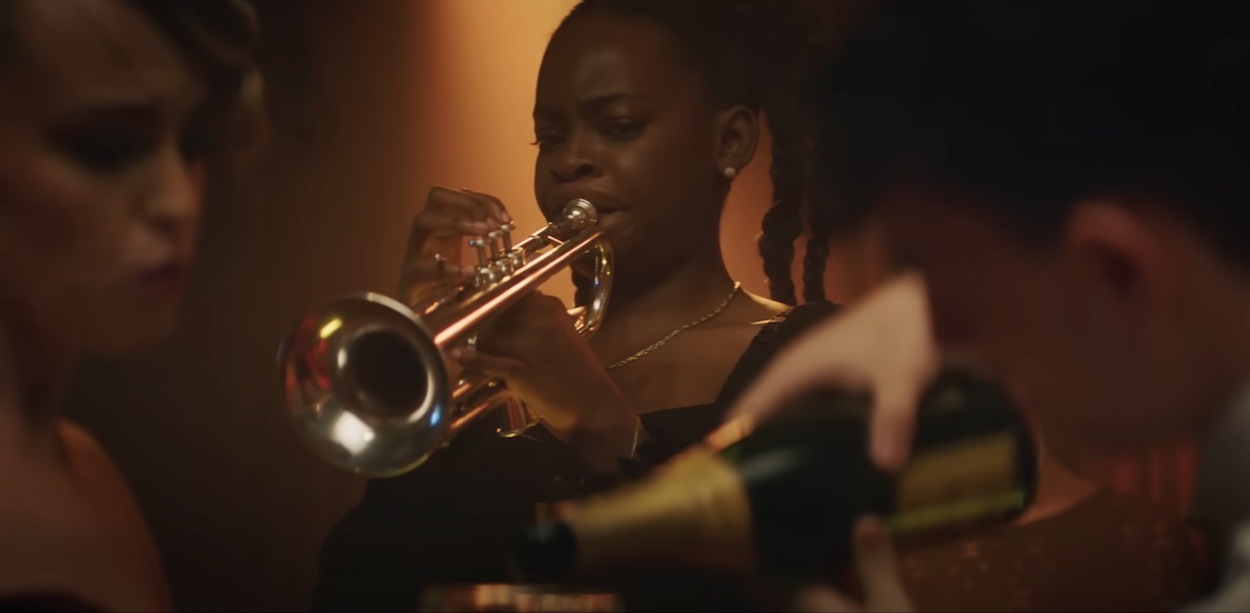Samona on Greenpeace, Don’t Stop set
You’re currently based in London, though you were born in Coventry to Nigerian parents. How has that blend of cultures and perspectives informed your career, directorial approach and aesthetic?
I think my upbringing and background has influenced my work in two ways. Firstly, it comes pretty naturally to me to celebrate and explore the richness of my heritage. I love learning about Yoruba culture and I love to see the ways that Yoruba, West African and Black culture more broadly speaking has a huge influence on popular culture. The vibrancy and rich history feel like an endless wealth of inspiration – everything from music, literature, fashion, philosophy and beyond.
Secondly, being comfortable as an outsider has taught me to observe. Never being fully at home or welcome means that I’ve always interrogated my own position and place in every space I enter. Too British to be Nigerian amongst my extended family and too Nigerian to ever be considered fully British. Midlander living in London. I’ve become accustomed to being a foreigner. It took me a while, but once I got used to it and became comfortable in that space, it has allowed me to embrace my unique perspective and cross-cultural identity. Through that unique space I’ve been able to come to conclusions that I believe have made my work and voice stand out.
Still from Samona’s short film, Kindred
Prior to moving into writing and directing, you worked extensively as a commercial content producer – how did the transition come about, and has that grounding in production proved useful?
More than anything, I see myself as a filmmaker. Since my late teens I’ve enjoyed making films in whatever capacity. From self-shooting, to editing, to finding a somewhat stable career producing commercials. I’ve always just loved the whole process of making films. I spent a number of years producing commercials, I was fortunate enough to have a lot of fun travelling the world with friends, but as the jobs were getting bigger, deep down in my heart I knew I wanted to tell my own stories. It had been a number of years since I had made anything personal, and I was itching to do something for myself.
This was all at the same time as the migrant crisis was beginning to be a regular feature in the media. I found myself wrestling with the topic of the migrant crisis, the complexities surrounding the topic started to become a vague idea for a film in my mind. The film wasn’t for anyone or anything in particular, but more a way for me to explore some of the conflicting narratives I was wrestling with. I was fortunate to come across an open brief put out by The Barbican and The Smalls as part of their season The Art Of Change. Luckily, they liked the idea and I took the opportunity to create this film that I had in my head that went on to become Kindred. I had a really amazing time making Kindred and for me it reaffirmed that I had something to say and that my heart was in directing stories that meant something to me.
Greenpeace, Don’t Stop
Your most recent work, Don’t Stop for Greenpeace, is a brilliantly scathing comment on the climate crisis, with fossil fuel producers partying like Nero while Rome burns. Can you tell us a bit about how you got involved in the project and what the brief was?
I’ve been working with Steve McQueen’s production company Lammas Park for the last two years or so. Steve set it up as a way to nurture young talent and I was lucky enough to be put on his radar and begin working with them. The advertising agency Mother reached out to Lammas Park with a project they had been working on for some time. They had the rights to the incredible track Don’t Stop by Fleetwood Mac and had pulled together an incredible team to create a modern interpretation of the song. They wanted a film to accompany the song that reframes the song as a plea to the public around the dire need to act to avoid the climate disaster we are heading towards. The brief itself was pretty open, they just wanted to create something that had an impact. I went away and came up with the idea to shoot a big metaphor which showed how we’re all complicit but that we all have an opportunity to do something. After some internal brainstorming, we shared the idea and both Greenpeace and Mother loved it, we then developed it a bit further together and shot the film that you can now see. It was a really big team effort at every stage. I was so fortunate to have a team of some of the most talented and passionate people around.
Greenpeace, Don’t Stop
The future of the planet was a theme you’d already explored – albeit through a more optimistic lens – in Earth Day 2020 – and big geopolitical themes like the migration crisis (Kindred) and the BLM movement (Rose Rouge) are often addressed in your work. Do you consider yourself a political filmmaker?
I don’t really categorise myself when I think about my work. I just make work about topics and subjects that interest me or that I feel I have something to say about. I’m naturally a big thinker, I like to question everything, so often when I get approached, if it’s about something that’s been on my mind, then I will happily put my ideas forward to be considered. The very act of existing is inherently political, so I don’t think it’s possible to separate our work from our politics. I don’t go out of my way to broach political topics, but I guess I do like to tackle some of the harder topics which we all face.
From Samona’s short film i and i
By contrast, your short film i and i is a portrait of one man’s metaphysical journey, touching on mental health and masculinity, a particular issue within the Black community; was there any sort of autobiographical element, or personal connection to the subject-matter? What sparked the creative idea?
The themes and story of i and i were sparked from a number of places. Mainly lockdown and the isolation that forced a lot of us inside our heads. I became frustrated by my own inner voice, but also fascinated by this constant inner dialogue that we all wrestle with all day, every day. The film didn’t necessarily set out to be about mental health per se, I was more interested in exploring the relationships that we have with ourselves, and how those relationships can take so many different forms, from minute to minute each day. I wanted to tell a story that gave a glimpse into the inner chaos that lies beneath the surface of us all.
Ahluwalia Joy
Your films are often hard to define, as they straddle genres and formats – Ahluwalia Joy, for example, was a mix of fashion film and docu-short. What appeals to you about playing with reality in this way?
I never had a traditional way into filmmaking, I was never limited by knowledge or expectation. So if I had to hazard a guess, I think innocence and naivety has played a big role in how I’ve found my voice. My filmmaking voice has clear influences, but I’ve never felt a big impulse to fit into any boxes or approaches. I love playing around on the edges, pushing and pulling on expectations to create something that doesn’t quite exist in a traditional place.
You’ve also done a fair amount of commercial work for brands like Nike, Asos, Levi’s and Converse – is this a space you’re keen to get back into again? Are there any brands in particular you’d be interested in collaborating with?
I owe a lot of my experience and exposure to the process of filmmaking to the commercial industry. I was massively influenced and inspired by the incredible commercial directors of the 90s. I’ll always have an affinity to any opportunity to tell a good story and I’ll always have bills that need paying. For me, it’s about finding the balance. I’m drawn towards the brands and agencies that like to take risks. As a filmmaker, people see me as a risk. So naturally I want to lean into it and find and surround myself with the people who embrace and celebrate risk. So in short, I’d love to continue to make commercials in between my narrative projects.
Greenpeace, Don’t Stop
What are you working on at the moment? And what are your ambitions for the future?
I’ve got a feature film in development with Lammas Park and Film4. It’s a really personal story that I’m really excited to tell. Other than that, I have a few other longform narrative projects that are in their early stages along with some short form bits here and there. My big ambition is to tell longer narrative stories that fit within various genres. Coming of age, sci-fi, magical realism, crime – I really just want to continue to explore filmmaking and genre, pushing into longer form whilst retaining the DIY spirit that has fuelled me this far.
INFO:
Samona Olanipekun website
@samona_o
Lammas Park website
@lammas_park_productions
